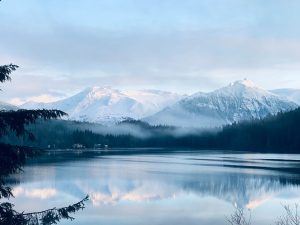Decaffeinated coffee has a checkered history when it comes to producing rich aromas and flavours which is why many coffee connoisseurs keep away from this option. Technology and advanced techniques has come along way and today, people can purchase decaf coffee beans that are as tasty as their caffeinated counterparts.
But what are the primary techniques used today and is their one technique that is better than the other in caffeine extraction and producing great coffee flavour?
For the sake of keeping things succinct, there are two primary methods of removing caffeine from coffee beans: there is a “Chemical Process” and a more natural “Mountain Water Process”.
The Chemical Process of extracting caffeine from coffee beans
This is the more common method which involves the use of chemical solvents (“chemical solvent” = a liquid used to dissolve another substance, in this case caffeine).
The Chemical process is where the green coffee beans (“green coffee beans” = coffee beans not yet roasted – raw coffee beans) are repeatedly rinsed with a chemical solvent to remove the caffeine. The chemicals commonly used are ethyl acetate or methylene chloride. These chemicals directly contact and interact with the green coffee beans.
There is a different chemical process where these chemicals do not touch the beans and instead interact with the water where the beans have been soaked for hours. After the caffeine is removed from the water with the solvent, the bean-flavored solution is reintroduced to the beans, allowing many of the oils and flavors to be reabsorbed.
In both of these processes the chemical solvents are rinsed out of the green beans and further vaporised during the coffee bean roasting process. The scary part is, there remains traces of chemicals in the coffee beans which are now decaffeinated and sold to people around the world. These tiny traces are considered to be “safe for consumption” (not our words).
Where are the Chemicals?

The Mountain Water Process to remove caffeine from coffee beans – how it works
Put simply, the mountain water process is a non-chemical decaffeination process. This process literally uses clear clean mountain water to gently remove the caffeine from the green beans.
This is how it works:
The green coffee beans are immersed in water to remove the caffeine content. Once this step is done, what’s left are two things…
- Green coffee beans with no caffeine
- Water holding all the caffeine from the green coffee beans
However, it’s common for the water which now holds the caffeine to also hold some of the coffee bean flavour. Flavour and aroma can be extracted from the beans during this step.
Because of this, the water then undergoes its own process to separate the caffeine from any of the aromatics that also came out during the caffeine extraction step.
This produces two types of water…
- Water with the caffeine
- Water with the coffee bean aromatics and flavours
The water with the caffeine content is then removed. But the crucial next step is, the green coffee beans are then placed in a special tank where it is immersed in the water containing the aromatics and flavours. This step allows the green coffee beans to reabsorb all of its original natural flavours.
This is how the green coffee beans become 99.9% caffeine-free but retains its original flavour characteristics of the coffee beans is preserved and protected.
The beans are then dried to the required moisture content prior to our importation.
This is the process Vibe Coffee uses for its own Decaf Coffee Beans.
This Mountain Water Process is patented and is also organically certified in accordance with the regulations of OCIA, NOP and JAS. It is also Kosher certified.
The Final Word:
Not all decaf coffee beans are created equal. Do your homework before purchasing Decaf Coffee Beans. Great Decaf Coffee Beans really does come down to how the caffeine was removed and how the beans are roasted.




